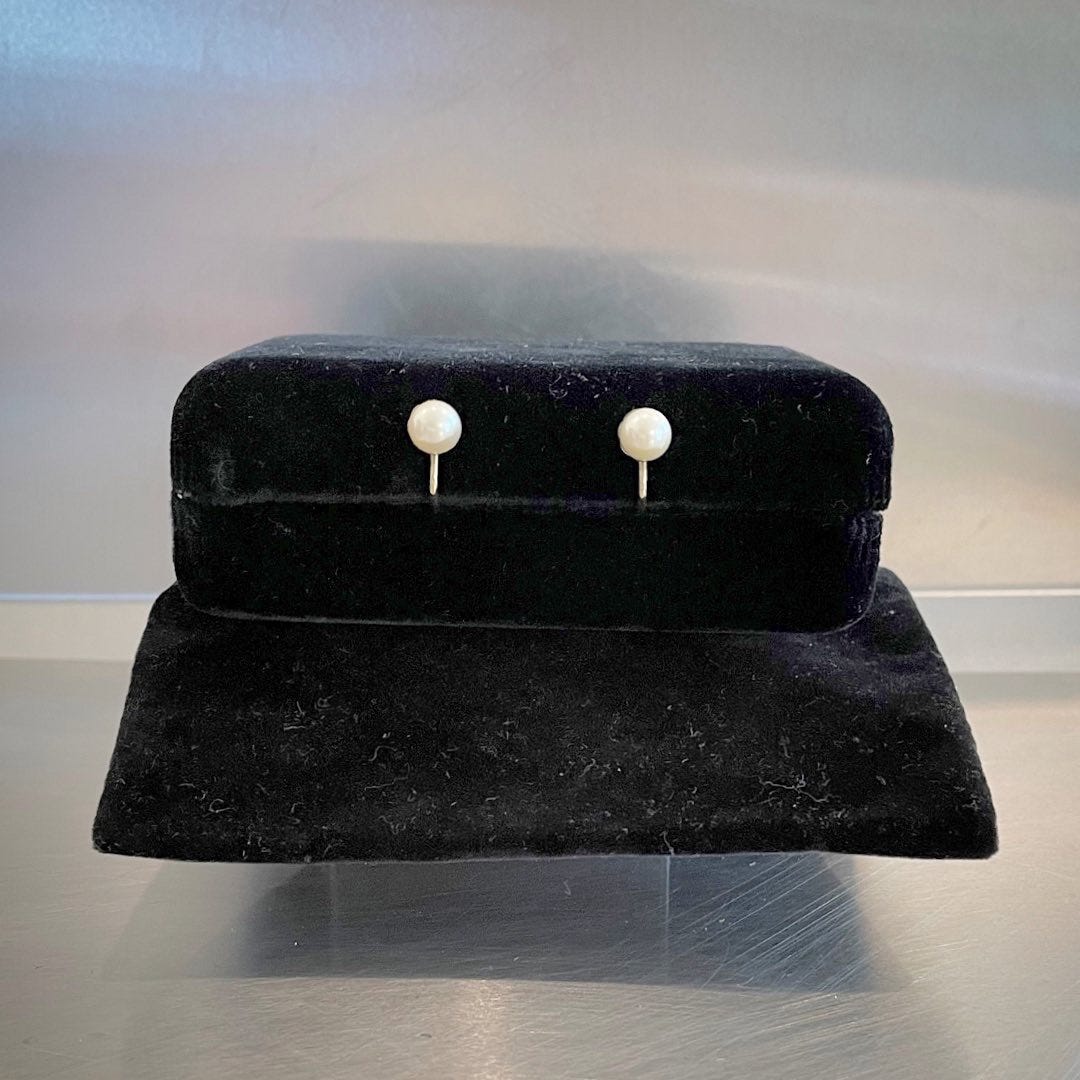My mother’s father died when she was only 7, and after that money was very tight. She went to a Catholic school and to help pay her tuition, she had to serve the other students at lunch. She was a beautiful girl, and a child model—black hair, blue eyes, porcelain skin, a lovely smile—but she had a difficult upbringing and I think she must have shut down some parts of herself to make it through. She got engaged to my father when she was 17. He was a naval aviator and we moved a lot; by the time I was 14, we’d lived in 11 houses. Those moves were hard on my mom.
Mom died of Alzheimer’s on November 27, 2020. Because of Covid, we weren’t able to hold her celebration-of-life service until ten months later.
At the service, I gave a slideshow of Mom’s life. Toward the end, I showed a slide of two separate paths in the woods, and explained that there were no pictures for the times she told me I was too much for her, or the times I thought she wasn’t enough for me. The times I was told I talked too much, was too emotional, wanted too much attention.
Another slide: a picture of rain on a few blades of grass. There was no picture of my mom clinging to me in her memory-care home in Massachusetts as I tried to extricate myself so I could leave to catch my plane. No picture of me sobbing all the way back to Virginia.
There were no pictures of the times I crawled into bed next to my mom, as a child and as an adult. Just trying to connect in a quiet space. When my parents came to visit my husband, son, and me, I’d go into the guest room and slip in next to her. She was always so happy when I did, and if I could have, I would have lain next to her at the end of her life. To hug her. To hold her face in my hands and tell her how much I loved her.
In the final months of my mother’s life, some family members banned me from learning anything about her health. I believe they thought I asked too many questions. I was devastated, unable to sleep, overcome by such a sense of loss to not know how Mom was doing, but in my particular situation my attorney told me I had no rights. I did connect with an aide who would use her own phone to let me Facetime with Mom. That was the only saving grace.
The day she was buried, I filled a red box to be placed under Mom’s urn. Among the objects I put inside were a bracelet, some necklaces, three letters I had ready to send her before she died, and a fourth I’d written just that morning—in which I told her I loved her and had forgiven the family members who’d shattered me. I know this is what she would have wanted. The pearl earrings I’d found when we were cleaning out her house did not go in the box. I believe she may have worn them at her wedding; I wore them at her service, reaching up to touch them often, thinking that perhaps she’d done the same.





